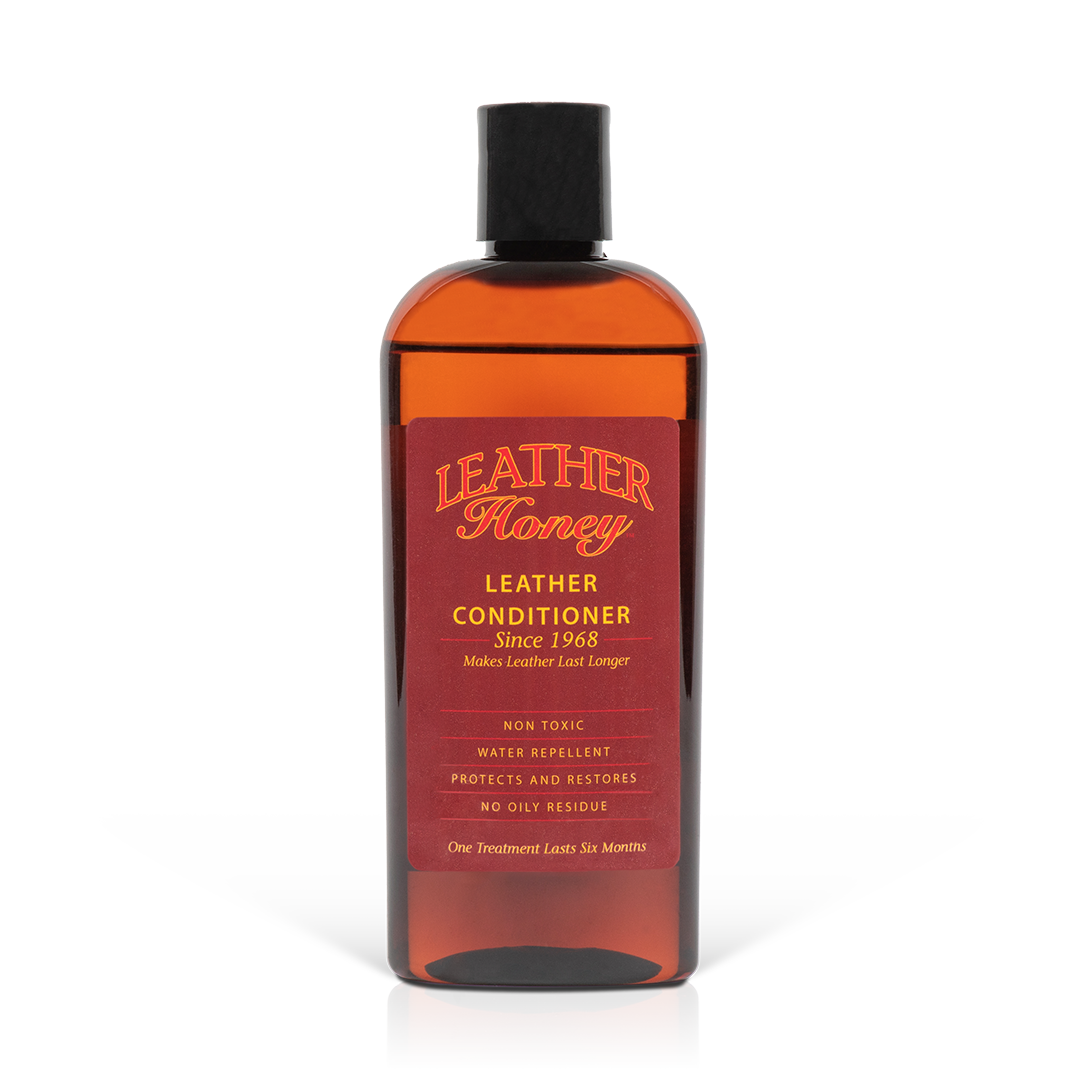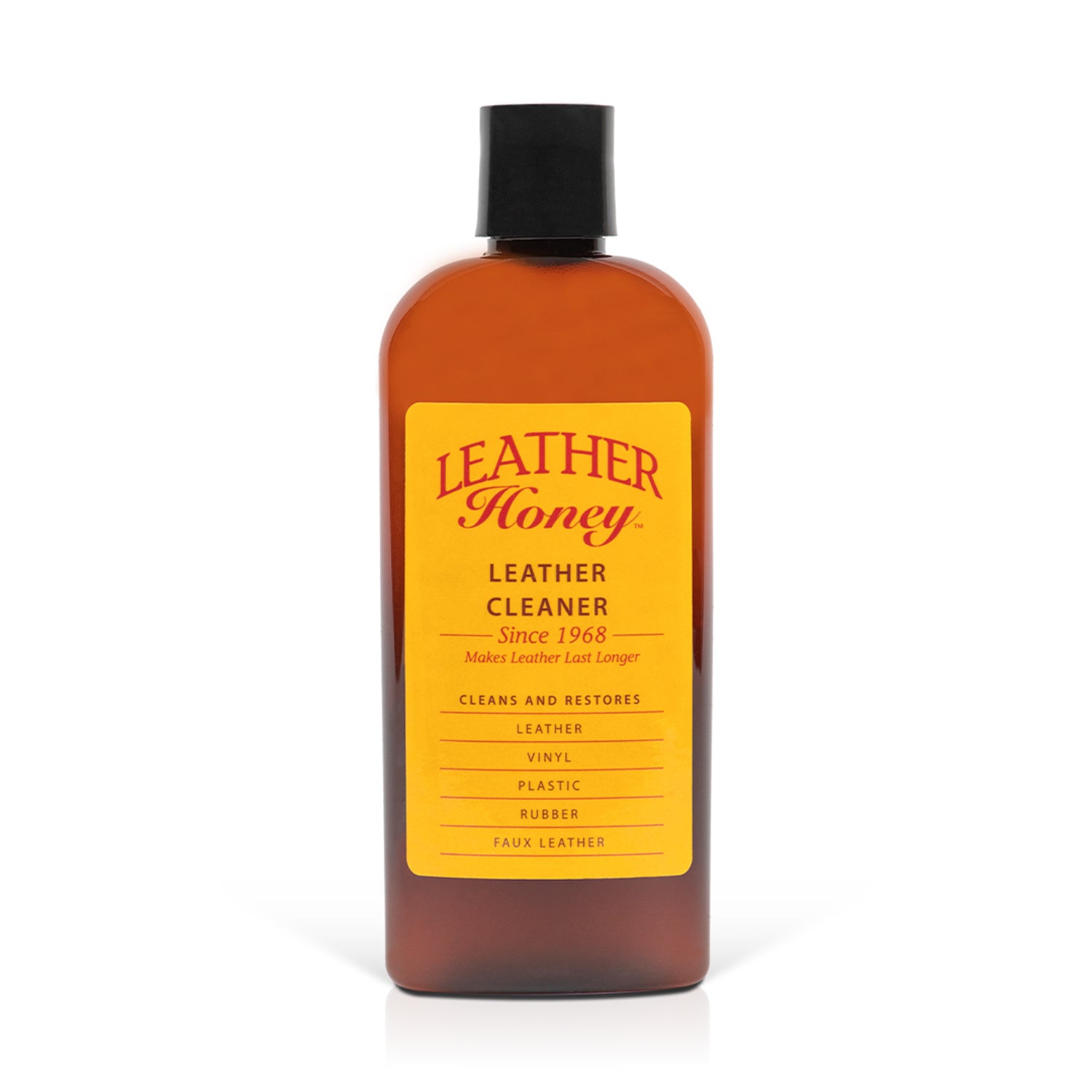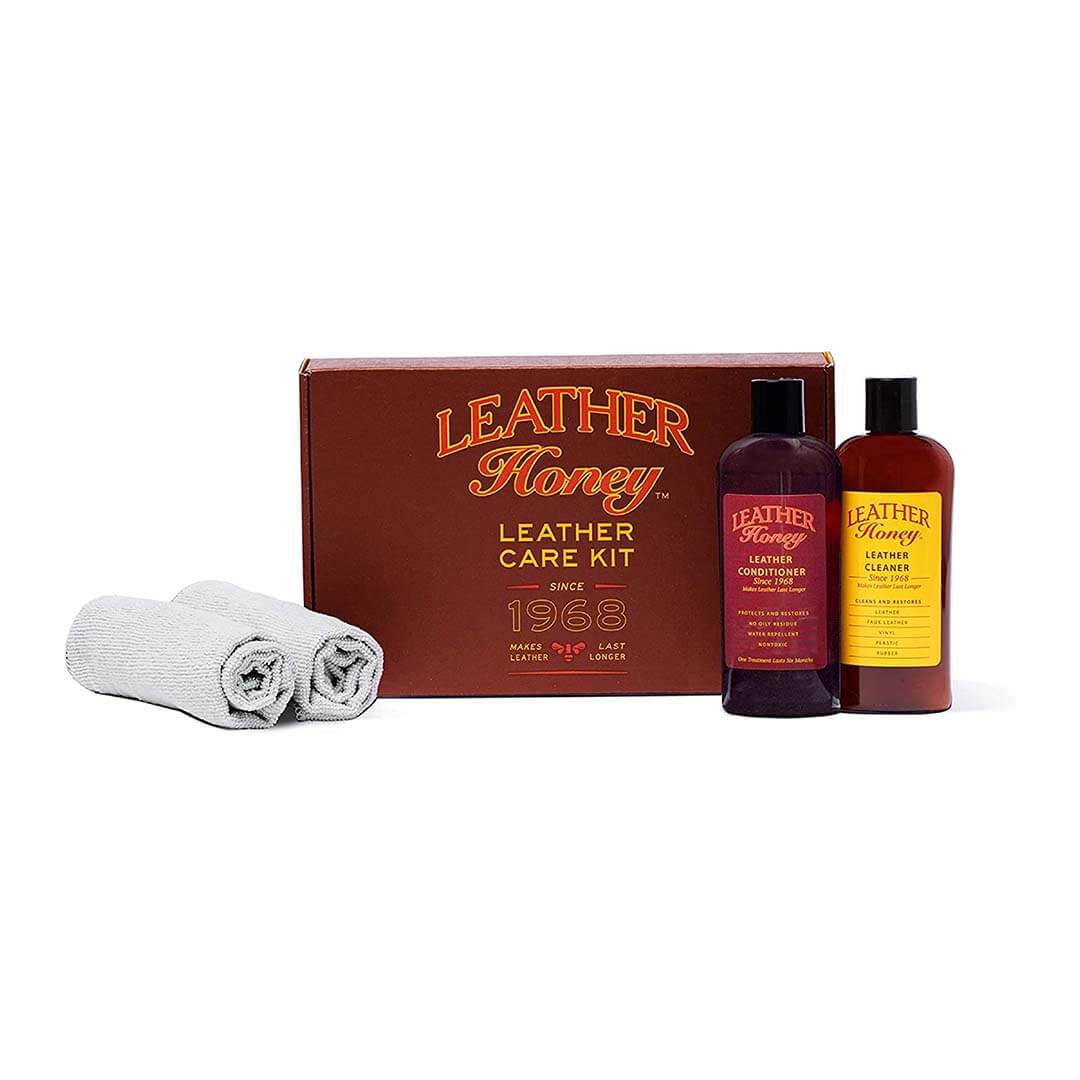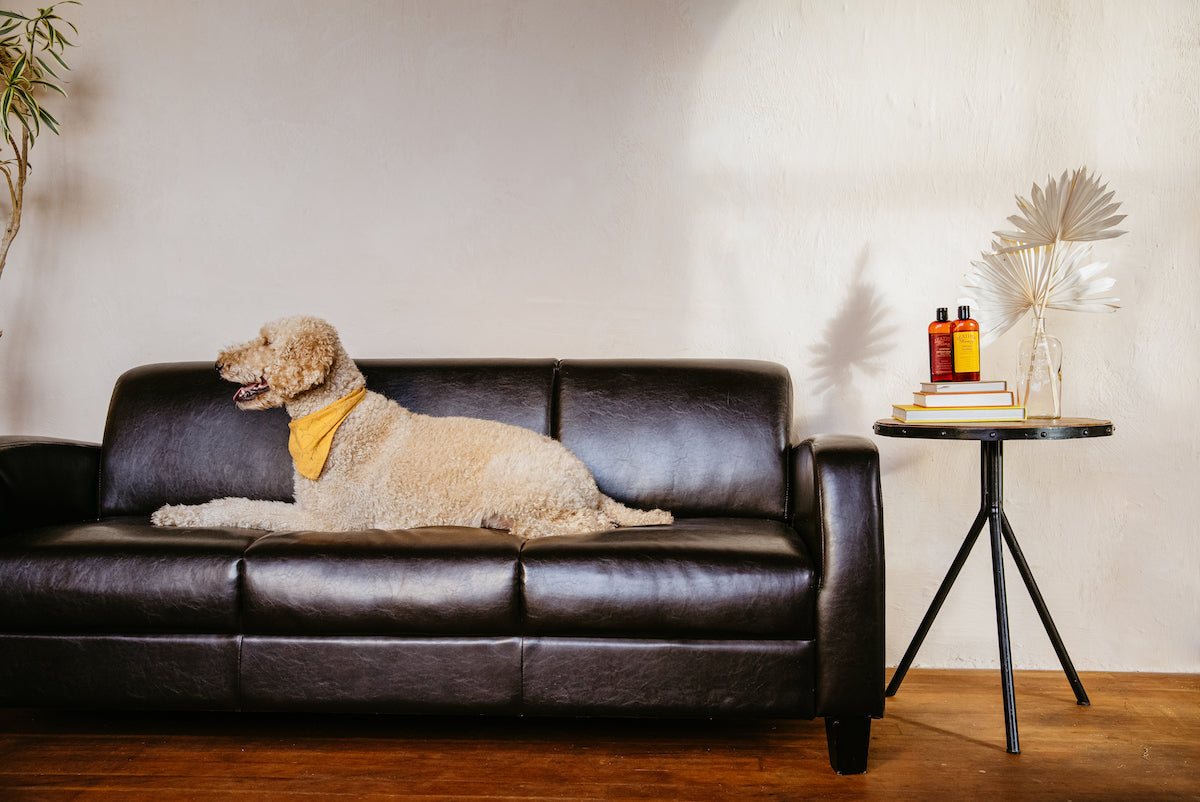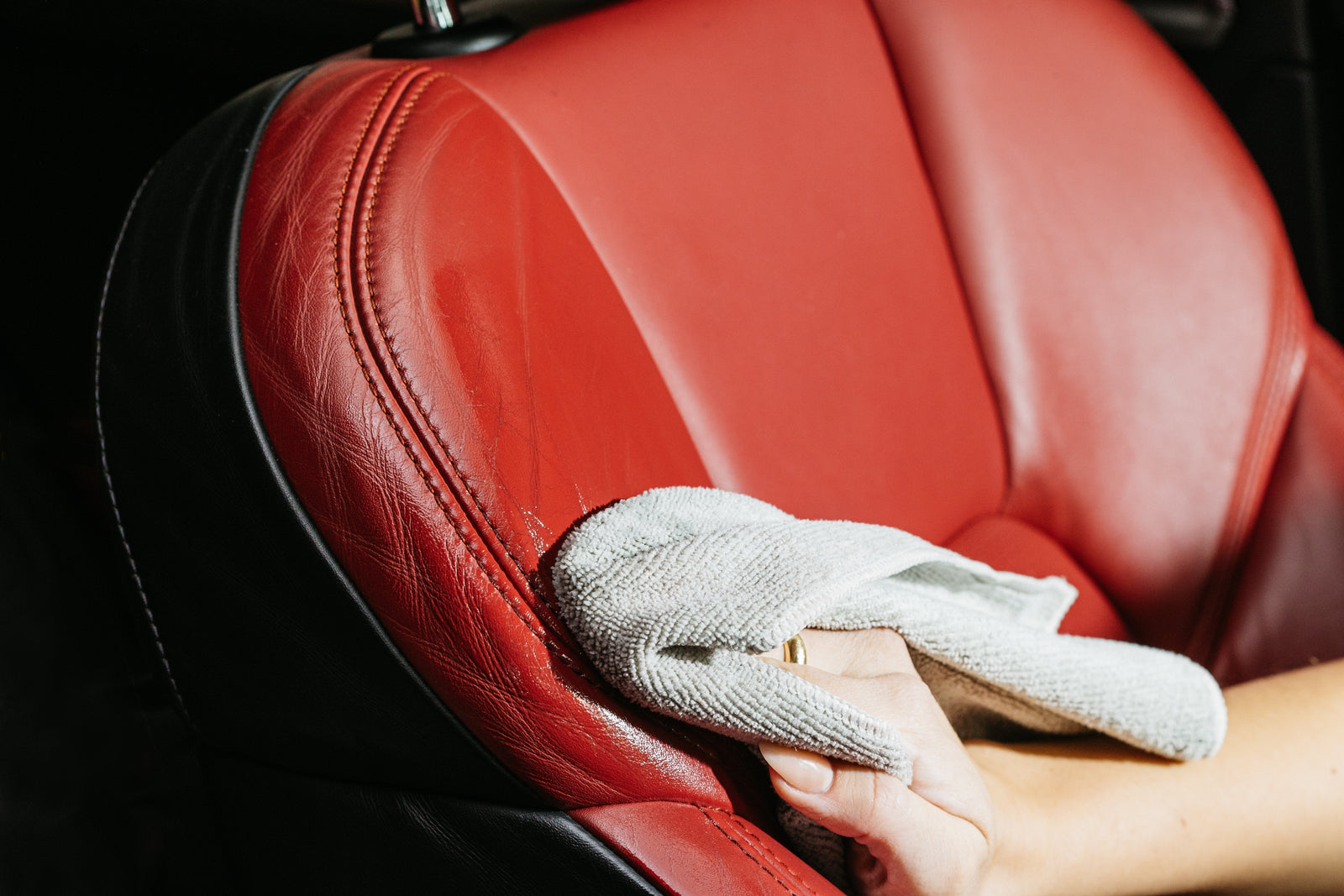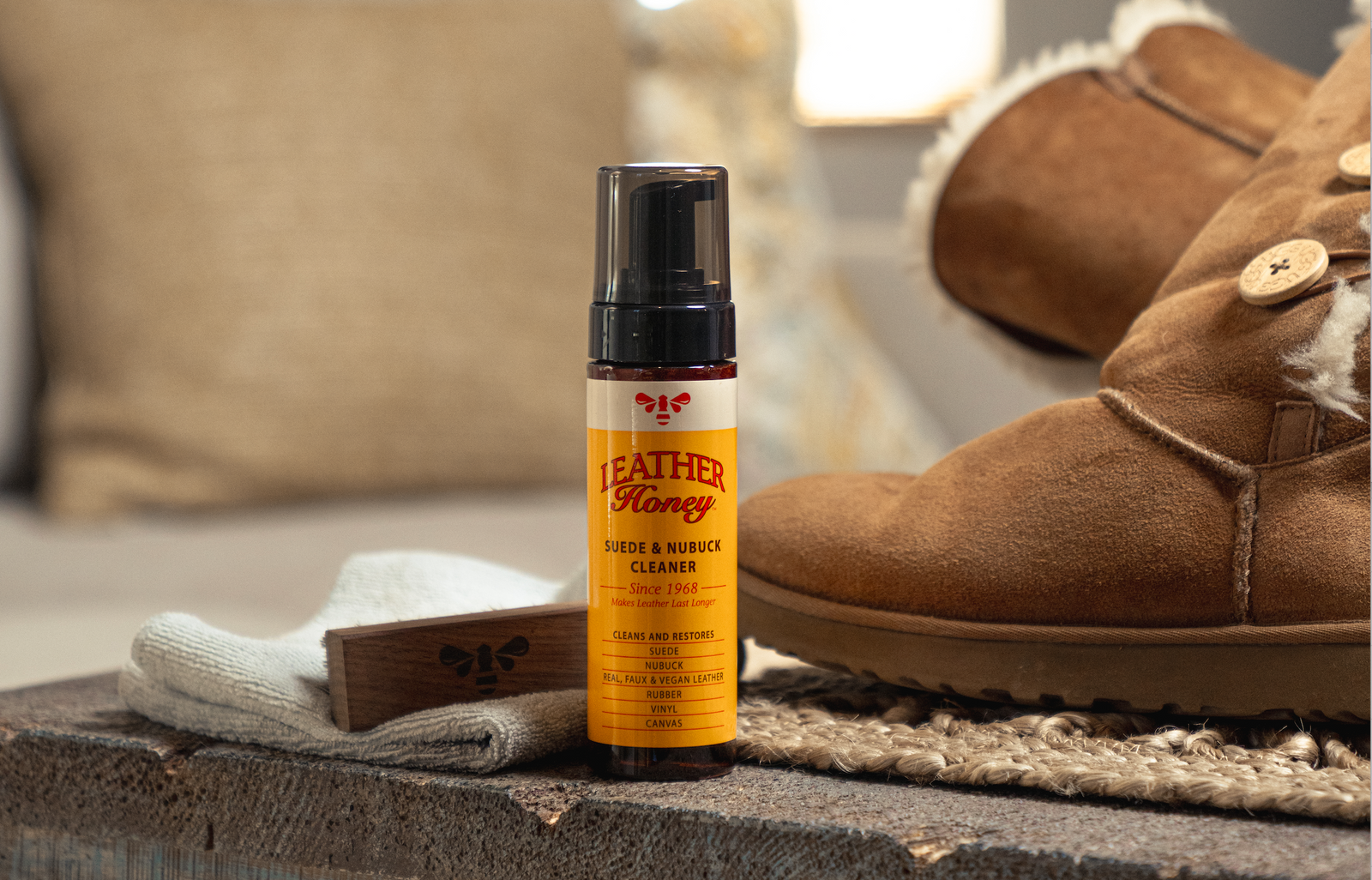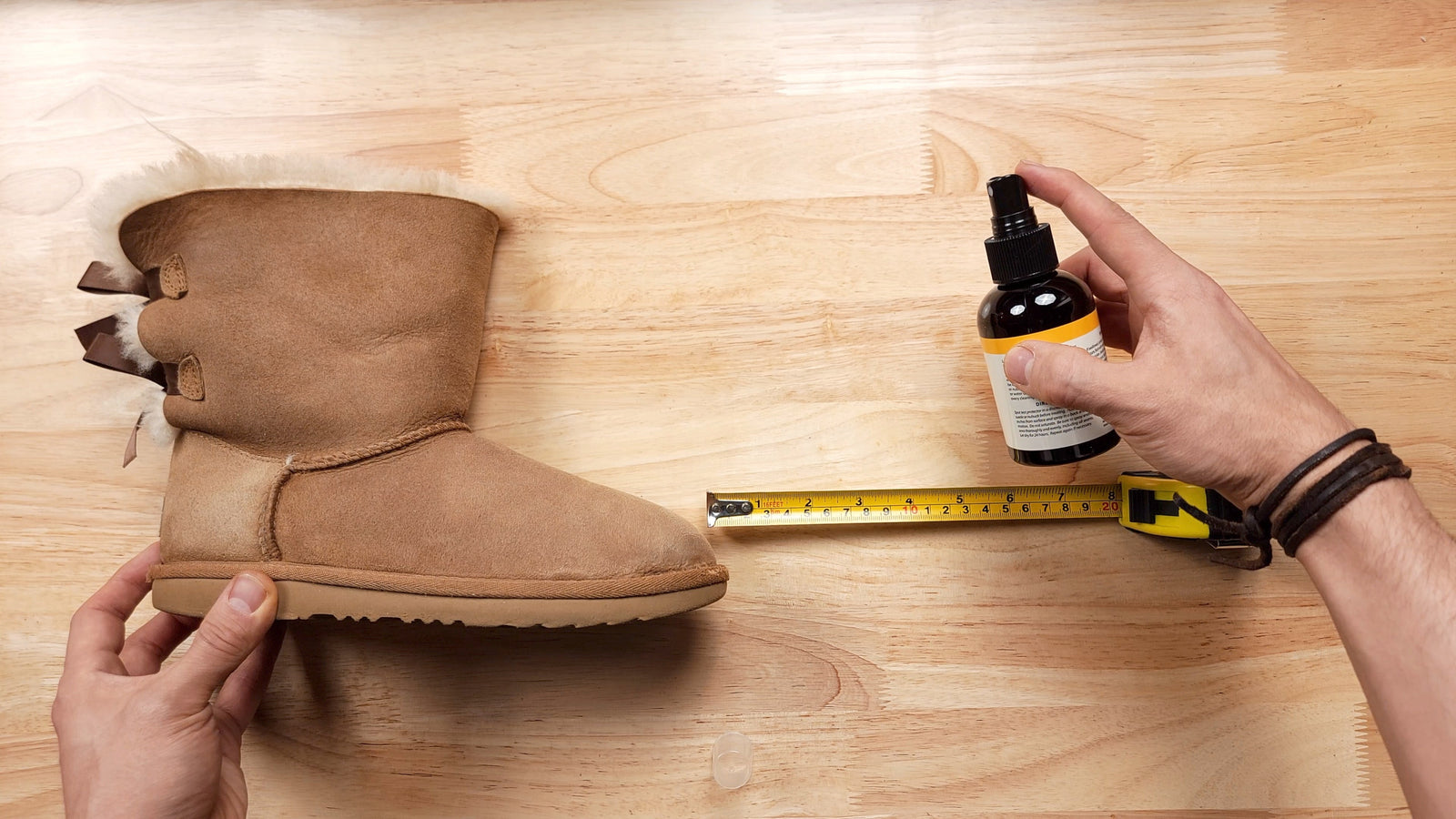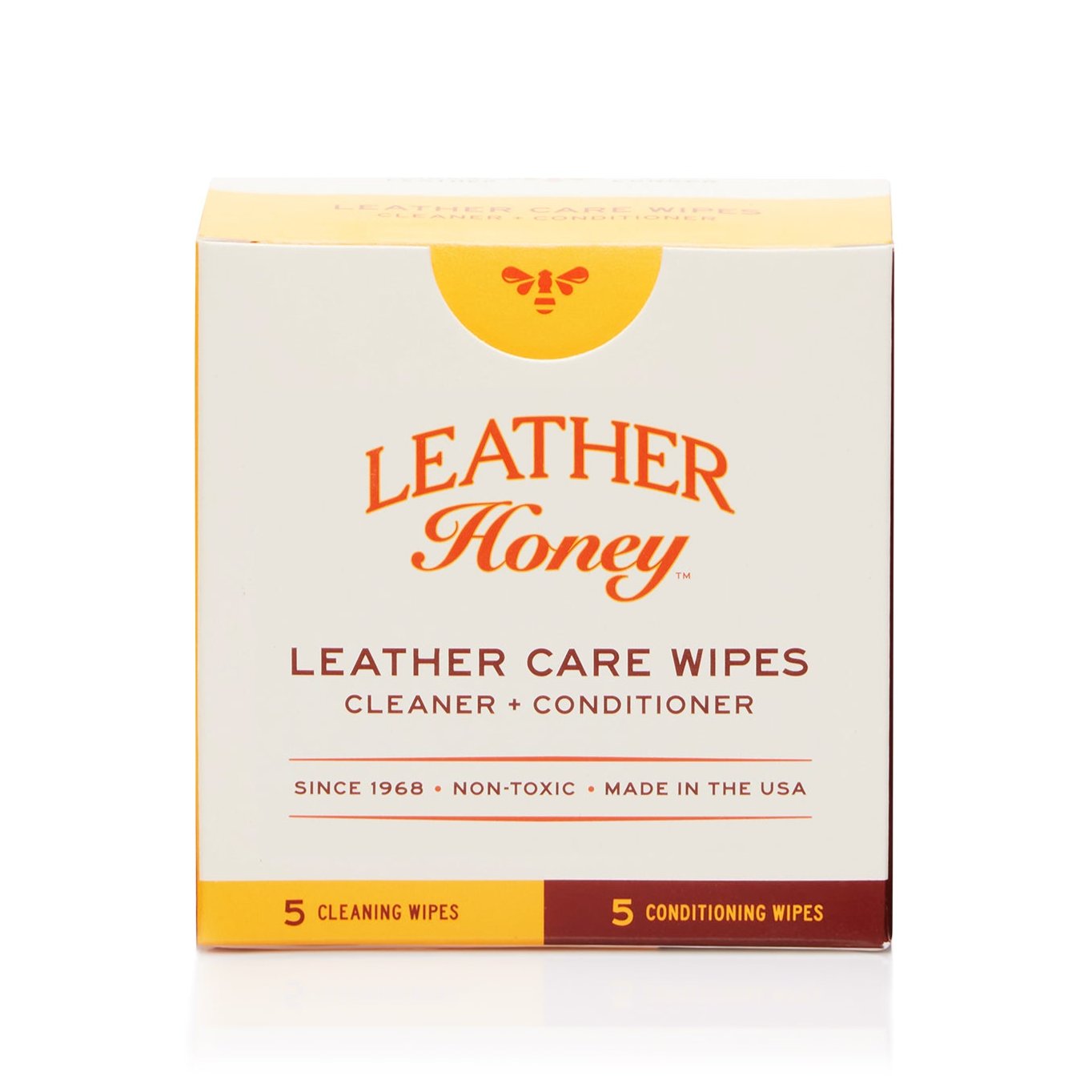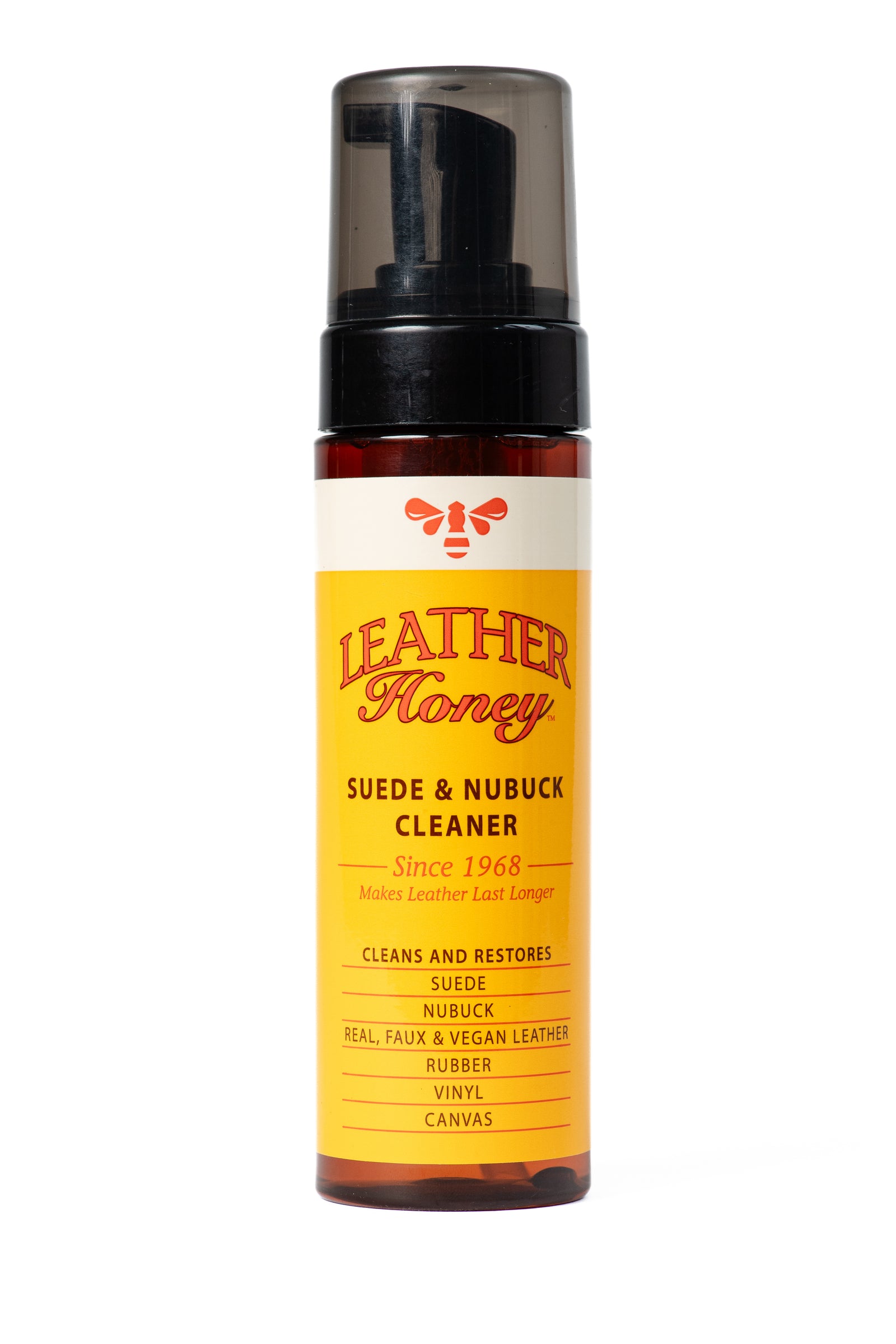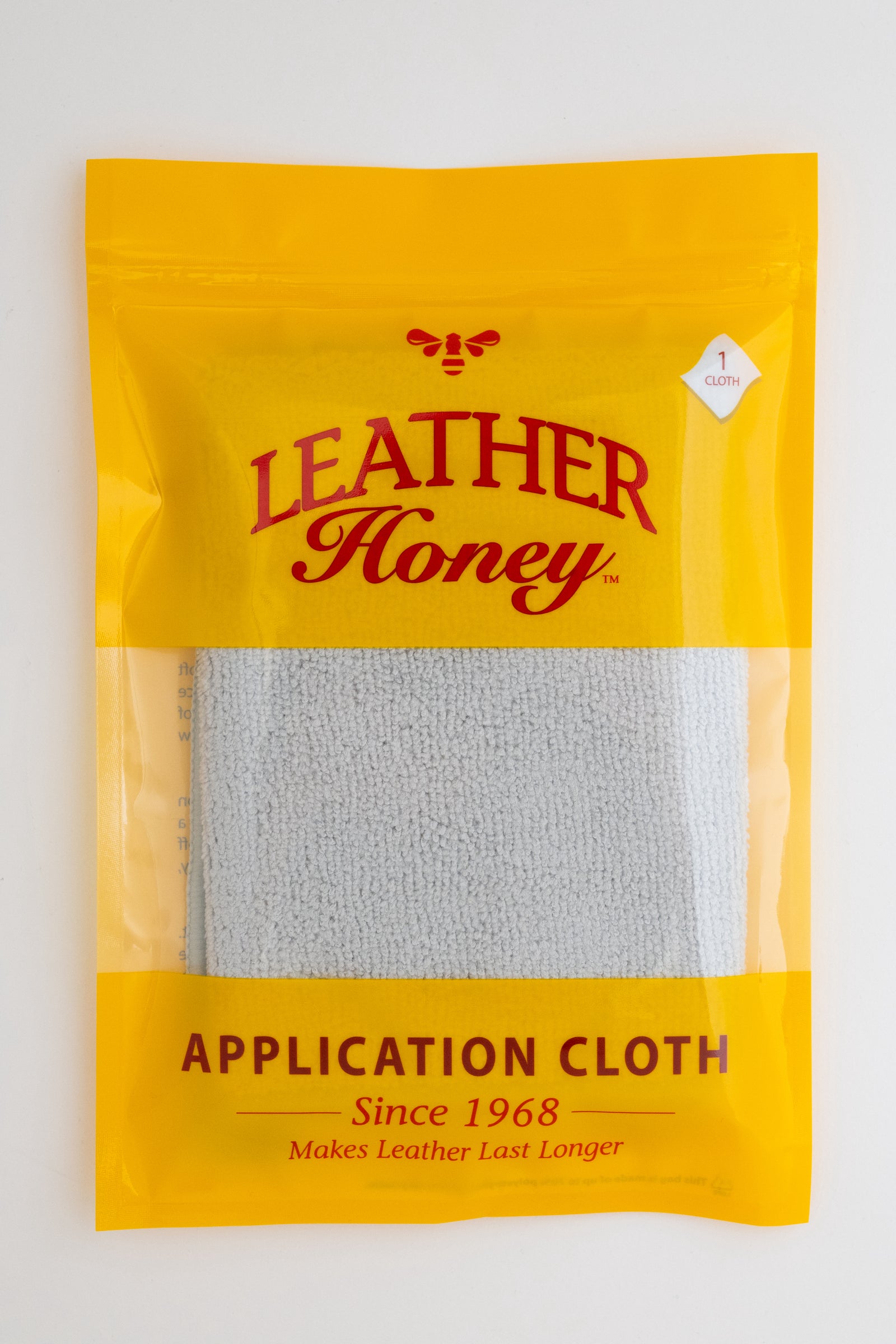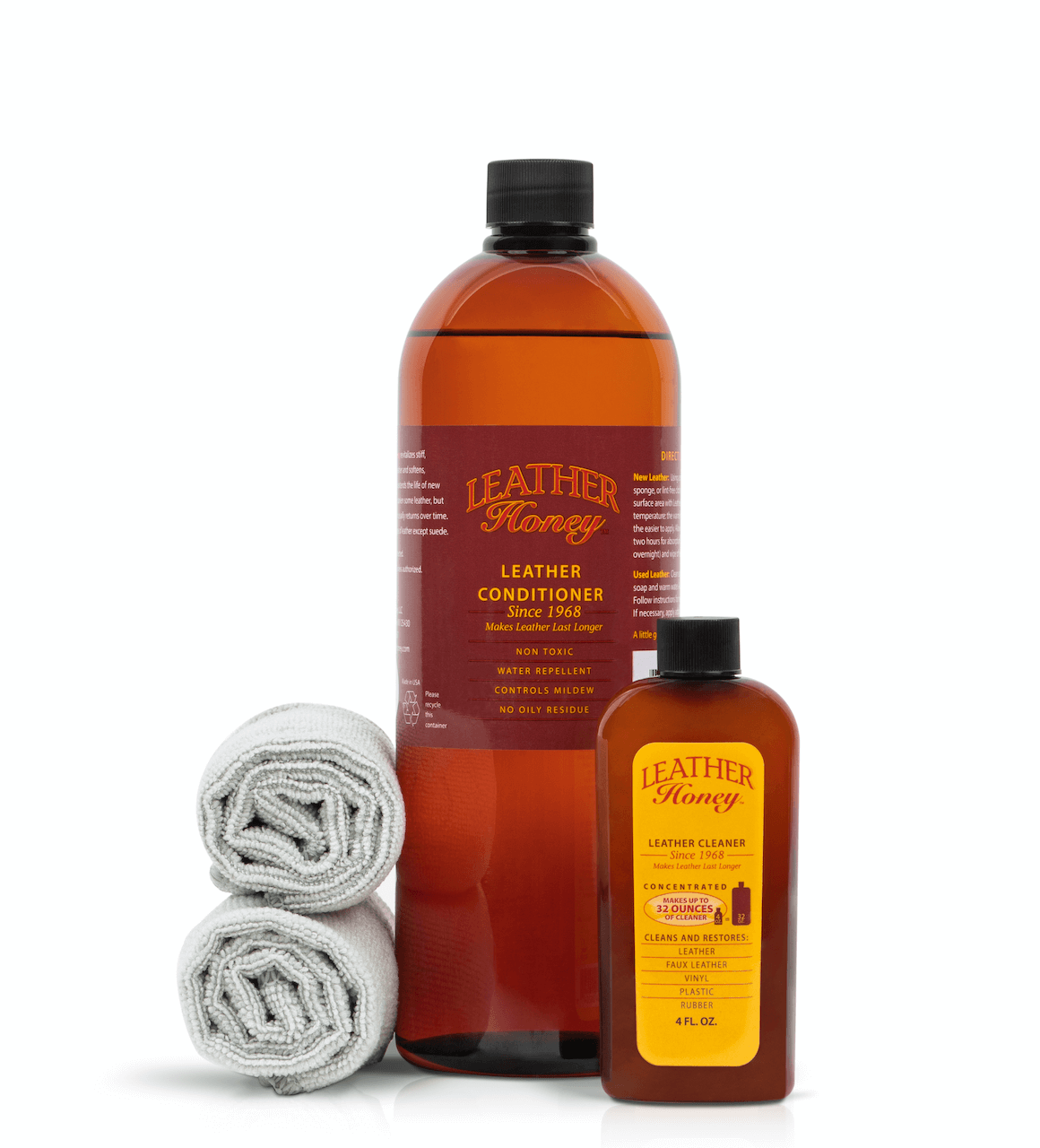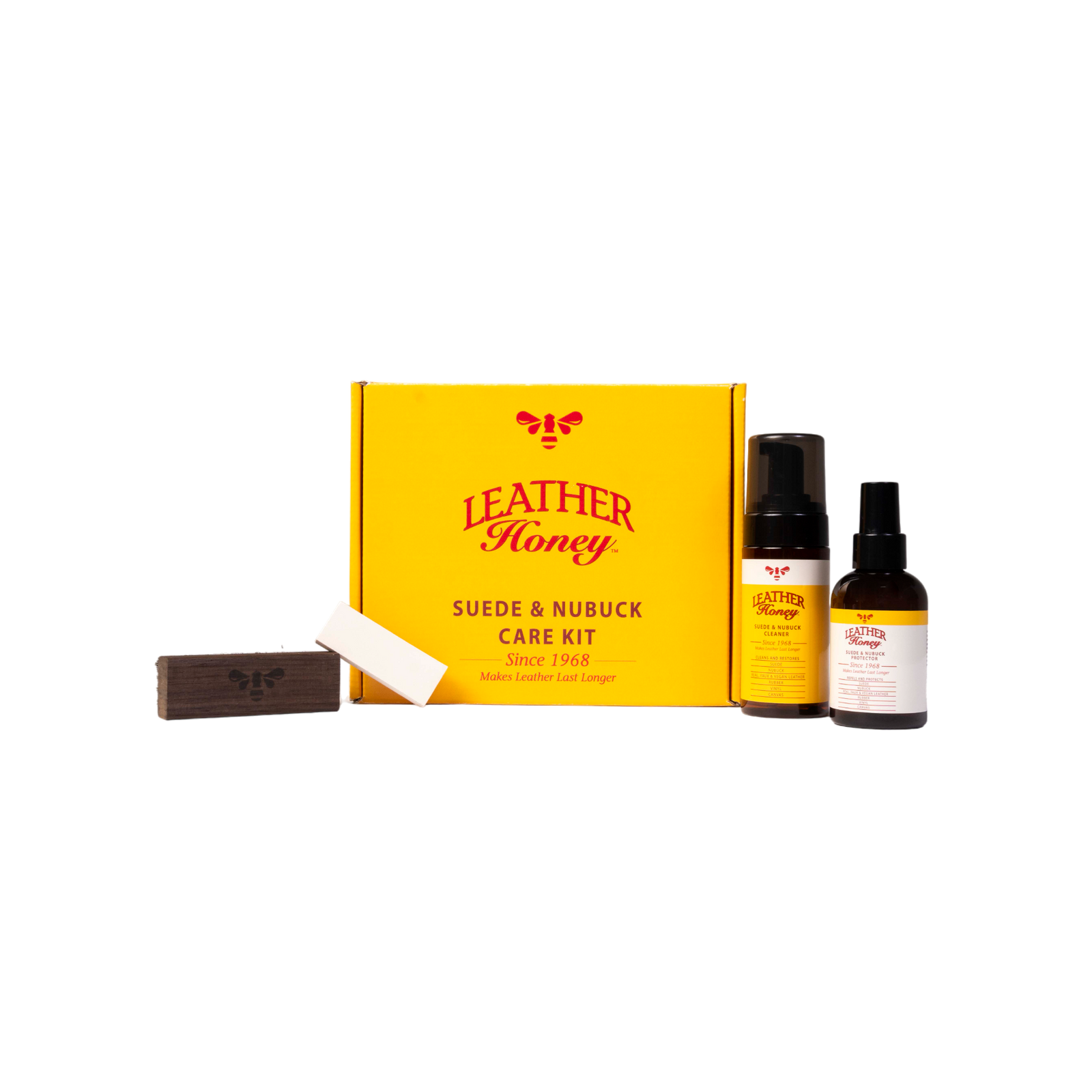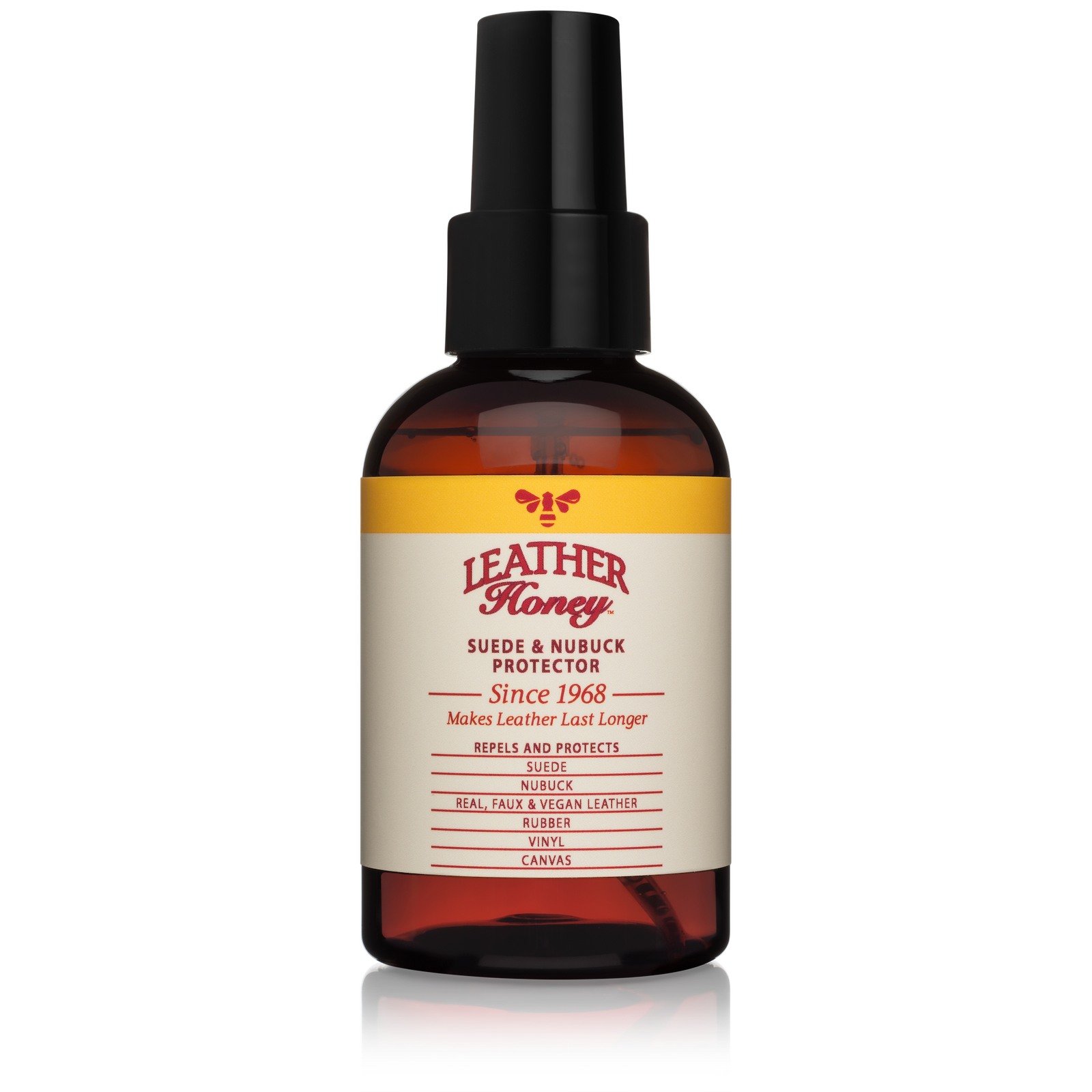Leather is a natural material, and that means it’s absorbent. That’s not inherently a bad thing — except when it comes to smells and bad odors. Leather absorbs them all, and once it does, it’s difficult to remove them.
Here's the good news: Getting bad smells out of leather is difficult, but not impossible. You can get bad smells — smoke, pet odors, mildew or must, perfume and other fragrances — out of leather by following the guide below.
How to Get a Bad Smell Out of Leather in 5 Steps
1. Understand what kind of leather you have
The type of leather you’re dealing with, as well as the type of leather item, is going to dictate your approach here. That’s because genuine leather and faux leather must be treated differently. Genuine leather is more delicate than faux leather, and it’s also more absorbent. That means genuine leather is more likely to collect odors over time. (It also lasts much, much longer than faux leather, which is a good thing!)
The item you’re trying to clean comes into play in one very important way: If you’re trying to get a bad smell out of a leather couch, it’s important to understand that beneath the leather is often foam cushions and other upholstery materials, which absorb odors just as easily as leather. This can be especially true with smoke and pet odors.
If you’ve cleaned your leather using the tips below and the smell persists, it’s very likely you’ll also need to treat the cushioning. Luckily, with many couches you can remove the leather coverings, which will allow you to clean or replace the cushioning and remove the odor there, too. Keep in mind this also comes into play on other leather items that also contain other materials — the lining of a leather jacket may need to be cleaned in addition to the leather, as will the lining of a leather bag.
2. Clean the leather with a leather cleaner
Again, pay attention to the type of leather you have and the manufacturer's care instructions. Some leather cleaners, like Leather Honey Leather Cleaner, are safe for genuine leather, faux leather, bonded leather and even rubber and plastic. But others are designed only for genuine leather or only for faux leather. If you're trying to get a bad smell out of suede, use Leather Honey Suede & Nubuck Care Kit.
To clean your leather to remove the odor and smell, first do a spot test in a discreet area. If everything is good (and with Leather Honey, it should be) apply the leather cleaner to a lint-free cloth, moistening the cloth completely. Then wipe down your leather, concentrating on soiled or especially fragrant areas. You should not need to scrub or rub harshly; in fact, that won’t help remove the odor and may damage the leather’s surface. Allow the leather to completely dry, then reassess the situation — it’s very likely that the odor has been completely eliminated. If some bad smells still linger, you can attempt another cleaning.
Keep in mind that you shouldn’t try to cover an odor with another odor, like a cleaner that carries a fragrance or scent. That will very often only make things worse. Use a non-toxic, fragrance free cleaner like Leather Honey Leather Cleaner.
3. Air it out
You can actually combine this method with cleaning, and it’s particularly effective on PU or faux leather, which can smell like fish due to the dye and packaging process. After you’ve thoroughly cleaned the leather to remove the odor, allow the leather to dry in a sunny spot with air circulation — outside on a nice day is a great option if you’re sure it’s not going to rain. The sun and the fresh air combined will help dry the leather quickly and eliminate any lingering odors.
4. Turn to odor eliminators

If cleaning the leather alone doesn’t work, you can turn to other natural ways to eliminate odors next. One of the most common and most effective options is plain old white or apple cider vinegar. We recommend using white vinegar for light-colored leather, and apple cider vinegar for dark leather.
You’ll want to dilute the vinegar with water, using a 1 to 4 ratio of vinegar to water. Test anything you apply to your leather in a discreet area first. Then gently wipe down the leather on all sides, using exactly the same approach you took to cleaning. Vinegar is especially effective on smoke and milder or musty smells, as it neutralizes the odor. The leather will briefly smell like vinegar following this treatment, but that odor will quickly disappear.
Another option is baking soda — you can gently shake baking soda over the smelly area. It will absorb the odor. Leave it on the leather for several hours or overnight; then gently vacuum it up or shake it off.
5. Condition genuine leather every six months
Conditioning won’t necessarily prevent odors, except in the case of mold or mildew. However, this is a vital step. This is especially true if you used vinegar to get rid of the bad smell. Vinegar can dry your leather out. If you don't condition the leather afterward, you run the risk of it getting ruined.
Think of conditioning your leather as a preventative step. Conditioning the leather with a product that prevents mildew, like Leather Honey Leather Conditioner, will keep bad smells from soaking in and prevent stains and discoloration.
More to Know About How to Get Bad Smells Out of Leather
Some common questions people have about getting bad smells out of leather.
How do you get a rotten smell out of leather?
You can get rid of a rotten smell in leather by using a premade leather cleaner, like Leather Honey Leather Cleaner or Leather Honey Suede & Nubuck Cleaner. If cleaning it doesn't work, you might want to consider an odor eliminator, like baking soda.
Do smells come out of leather?
Bad smells can last quite a long time on genuine leather. That's because genuine leather is porous, and thus can soak in odors and stains. However, if you clean it with a premade leather cleaner it should help a lot.
Does vinegar ruin leather?
Vinegar can dry leather out and yes, eventually ruin it. You don't want to use vinegar to get a bad smell out of leather.
You May Also Like:
